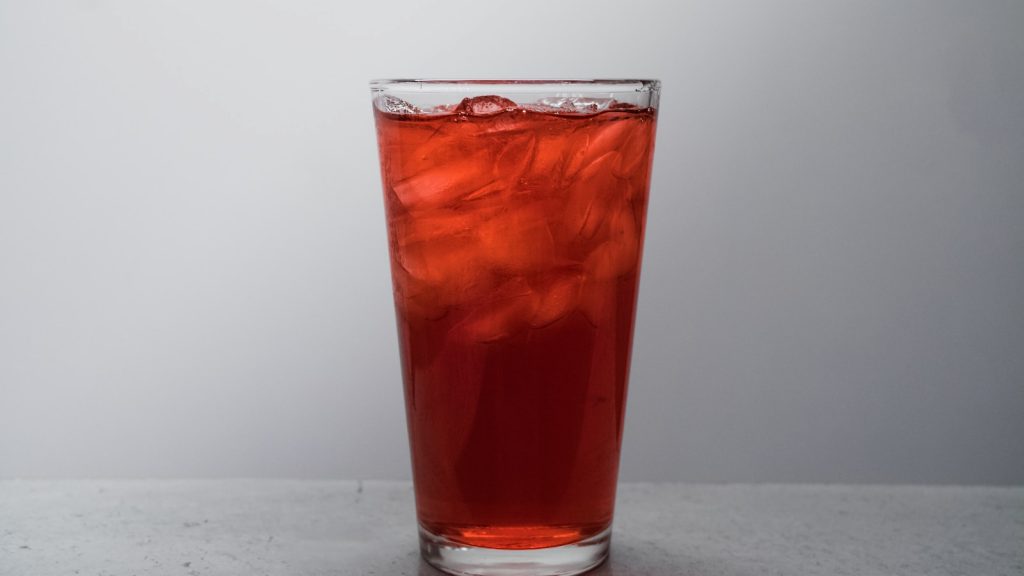Sweet tea, a beloved beverage in the Southern United States, is renowned for its refreshing taste and calming qualities. But have you ever wondered about the caffeine content in this popular drink? This article delves into the specifics of how much caffeine is in sweet tea, comparing it with other caffeinated beverages, and exploring the potential health implications of its consumption.
Sweet Tea: A Southern Delight
Sweet tea, a traditional iced tea variant, is widely consumed in the southern United States. It’s prepared by brewing tea leaves with hot water and then adding sugar for sweetness. Mostly, sweet tea is made with black tea leaves which do contain caffeine. However, the exact amount of caffeine can vary depending on factors like the type of tea leaves used, the brewing time, and the serving size.
Caffeine Content in Sweet Tea
So, does sweet tea contain caffeine? Absolutely, but the amount of caffeine can fluctuate based on several variables, such as the type of tea leaves used, the brewing time, and the serving size. However, on average, a 16-oz serving of sweet tea made from black tea leaves contains approximately 41mg of caffeine. This is significantly less than the caffeine content found in a cup of coffee, which can range from 95mg to 200mg.
It’s worth noting that the caffeine content can vary among different brands and types of sweet tea, with some containing more or less caffeine than average. Additionally, the brewing time can also affect the caffeine content, with longer brewing times resulting in higher caffeine content. Sweet tea can also be made with decaffeinated tea leaves, which are specially processed to remove most of the caffeine. In this case, the sweet tea would have little to no caffeine.
How Does Sweet Tea Compare to Other Drinks?
When comparing the caffeine content in sweet tea with other common beverages, it’s evident that sweet tea falls on the lower end of the spectrum. For instance, an 8-ounce serving of black tea typically contains about 14mg of caffeine, while a similar serving of green tea contains around 8mg of caffeine. On the other hand, an 8-ounce serving of coffee can contain anywhere from 95mg to 200mg of caffeine, depending on the type of coffee and how it’s brewed.
In the realm of carbonated beverages, a 12-ounce can of Coke contains about 34mg of caffeine, while the same serving size of Mountain Dew contains 55mg of caffeine. Therefore, if you’re looking to reduce your caffeine intake, sweet tea might be a good alternative to these higher-caffeine options.
Sweet Tea vs Coffee
While both sweet tea and coffee contain caffeine, the amounts differ significantly. Coffee, derived from the Coffea plant’s seeds, is typically more concentrated than tea, resulting in higher caffeine content. On average, a cup of coffee contains about 90mg of caffeine, while sweet tea contains just 41mg. It’s interesting to note that tea leaves actually contain more caffeine than coffee beans. However, because coffee is more concentrated, it ends up having a higher caffeine content in the final beverage.
Sweet Tea vs Iced Tea
While sweet tea and iced tea are both made with tea leaves, there are some differences in their preparation and caffeine content. Traditionally, sweet tea is made with black tea leaves and sweetened with sugar. In contrast, iced tea can be made with various types of tea leaves, such as black, green, white, or oolong, and can be sweetened or unsweetened.
On average, a 16-ounce serving of sweet tea made with black tea leaves contains around 41mg of caffeine. In contrast, the same serving size of iced tea made with black tea leaves also contains about 41mg of caffeine. However, this is an average, and the caffeine content can vary among different brands and types of sweet and iced tea. Some may contain more or less caffeine than average. For instance, iced tea can also be made with decaffeinated tea leaves, which would result in a beverage with little to no caffeine.
The Impact of Caffeine on Sweet Tea Consumption
The consumption of caffeine through sweet tea can have several potential effects. Here are a few to consider:
- Increased Energy and Alertness: Caffeine can boost energy levels and improve mental alertness, making sweet tea a popular choice for those needing a slight pick-me-up during the day.
- Improved Physical Performance: Caffeine can enhance physical performance by increasing adrenaline release, leading to improved endurance and strength.
- Improved Mood: Caffeine can also enhance mood by affecting certain neurotransmitters’ levels in the brain, such as dopamine and serotonin.
- Improved Cardiovascular Health: Regular consumption of sweet tea may boost cardiovascular health by reducing heart disease risk.
- Increased Diuresis: Caffeine is a diuretic, meaning it increases urine production and can cause frequent urination.
- Potential Negative Effects: Consuming sweet tea in large amounts or too frequently can result in adverse side effects such as jitteriness, anxiety, insomnia, and heart palpitations.
How to Minimize Caffeine in Sweet Tea
There are several methods to reduce the caffeine content in sweet tea:
- Use decaffeinated tea leaves: One of the simplest ways to lower the caffeine content in sweet tea is to use decaffeinated tea leaves, which are specifically treated to remove most of the caffeine.
- Use fewer tea leaves: Using fewer tea leaves when brewing sweet tea can also decrease the overall caffeine content.
- Brew for a shorter period: The longer the tea is brewed, the more caffeine is released. Brewing the tea for a shorter time can help reduce the caffeine content in the final beverage.
- Use cooler water: Brewing sweet tea with cooler water can also lower the amount of caffeine released into the final beverage.
- Mix with other herbs: Blending sweet tea with other herbs, such as mint or lemon verbena, can help decrease the overall caffeine content.
- Dilute with more water: Diluting sweet tea with more water can also reduce the caffeine content.
Decaffeinated Sweet Tea: A Viable Alternative?
Decaffeinated sweet tea, which has most of the caffeine removed, can be a good alternative for those who want to enjoy the taste of sweet tea without the stimulating effects of caffeine. The flavor of decaffeinated sweet tea can be similar to that of regular sweet tea, as the process of removing caffeine doesn’t affect the tea leaves’ flavor. However, some people may notice a slight difference in taste between decaffeinated and regular sweet tea.
In terms of health benefits, decaffeinated sweet tea doesn’t have the same stimulating effects as regular sweet tea due to its lower caffeine content. This can be beneficial for individuals who are sensitive to caffeine or have conditions that may be affected by caffeine consumption.
Sweet Tea Caffeine Content vs Other Teas
Different types of tea contain varying amounts of caffeine. Here are a few examples:
Black Tea
Black tea, the most common type of tea used to make sweet tea, typically contains about 14mg of caffeine per 8-ounce serving.
Green Tea
Green tea leaves contain less caffeine than black tea leaves but still have caffeine. On average, it contains about 8mg of caffeine per 8-ounce serving.
Oolong Tea
Oolong tea leaves are semi-oxidized tea leaves. They contain an average of 12mg of caffeine per 8-ounce serving.
White Tea
White tea leaves are the least processed of all teas. They contain an average of 6mg of caffeine per 8-ounce serving.
Sweet Tea vs Iced Tea: Caffeine Content
Sweet tea and iced tea are both made with tea leaves, but sweet tea is typically made with black tea leaves and sweetened with sugar, whereas iced tea can be made with different types of tea leaves, such as black, green, white, or oolong, and can be sweetened or unsweetened.
On average, a 16-ounce serving of sweet tea made with black tea leaves contains around 41mg of caffeine. At the same time, a similar serving of iced tea made with black tea leaves contains approximately 41mg of caffeine. However, this is an average, and the caffeine content can vary among different brands and types of sweet and iced tea, with some containing more or less caffeine than average.
Conclusion
In conclusion, sweet tea, a classic iced tea variant commonly enjoyed in the southern United States, is brewed with black tea leaves and sweetened, hence containing caffeine, a natural stimulant that helps increase energy and alertness. The amount of caffeine in sweet tea can vary depending on the type of tea leaves used, the brewing time, and the serving size, but on average, a 16-ounce serving of sweet tea made with black tea leaves contains about 41mg of caffeine. This is less than the amount of caffeine found in a cup of coffee, which can contain 95mg to 200mg of caffeine. Enjoy your sweet tea responsibly, keeping in mind its caffeine content.







